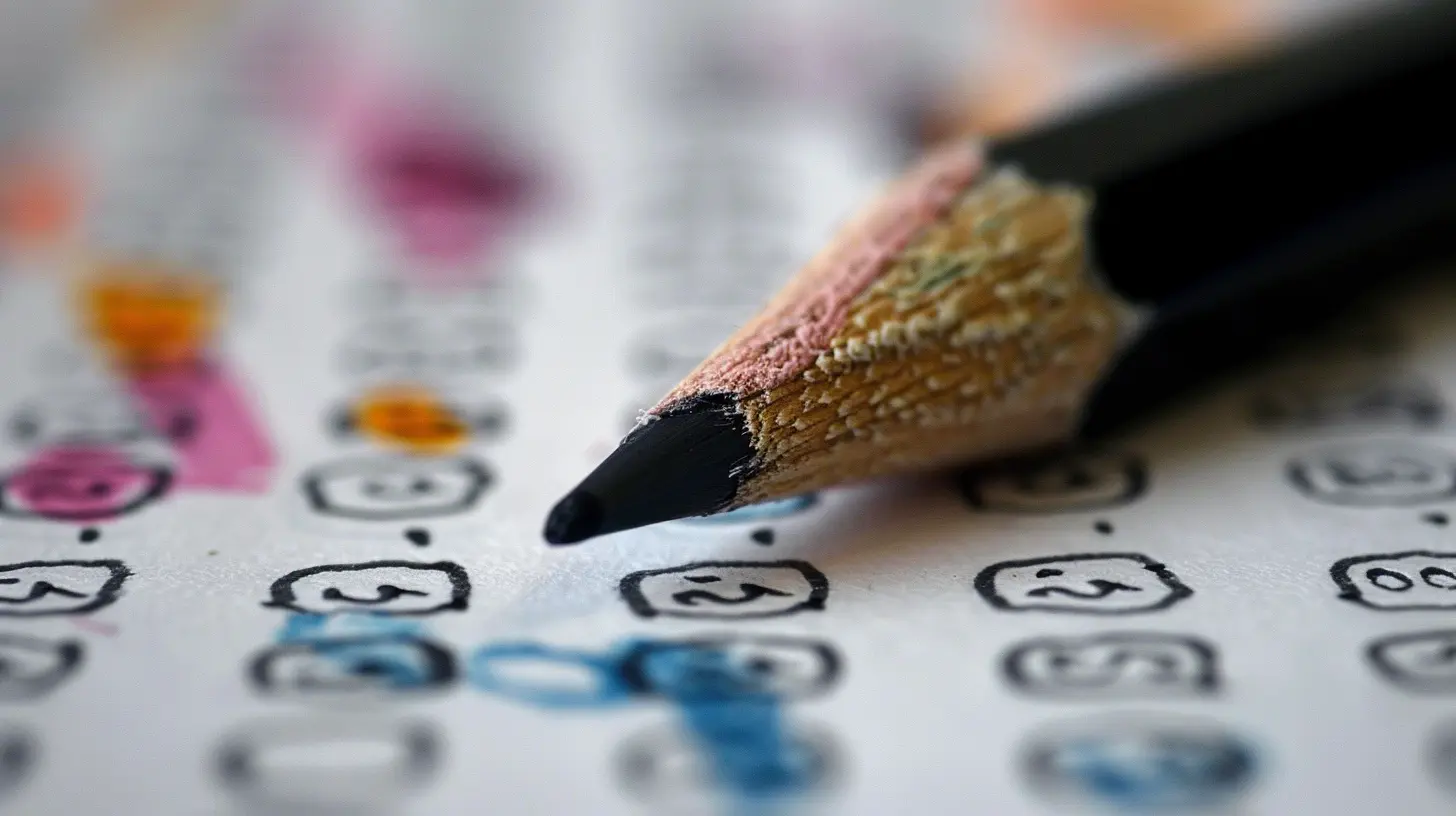6 April 2025
Scoring high on exams isn’t just about knowing the information—it’s about mastering the test-taking process. Whether you're preparing for the SAT, GRE, GMAT, or any other standardized test, practice tests are a game-changer. They help build confidence, improve timing, and reduce test-day anxiety. But how exactly do they work, and why should they be a core part of your study strategy? Let’s break it all down.

Why Are Practice Tests So Important?
Imagine you're training for a marathon. Would you just read about running techniques and expect to perform well on race day? Of course not! You’d train by running regularly, tracking your progress, and making adjustments. That’s exactly what practice tests do for exam prep—they simulate the real experience, allowing you to fine-tune your skills before the big day.1. Familiarizing Yourself with the Exam Format
Every test has its quirks—specific question types, time limits, and unique challenges. If you walk into the exam without having experienced it beforehand, you might feel lost. Practice tests allow you to get comfortable with the structure, so nothing feels surprising when you're sitting in the actual exam hall.2. Assessing Strengths and Weaknesses
It’s easy to assume you’re good at something until you’re put to the test—literally. Practice exams highlight your strong areas and expose weaknesses you might not have noticed otherwise. Identifying these weak spots early allows you to focus your study sessions on where you need improvement the most.3. Improving Time Management
Time pressure is one of the biggest challenges in standardized tests. Many students struggle to complete all the questions in the allotted time, leading to rushed responses and careless mistakes. Taking practice tests helps you gauge how much time you spend on each question, ensuring you develop strategies to pace yourself effectively.
How Practice Tests Boost Performance
Beyond just knowing the format, practice tests actively enhance your ability to perform well on test day. Let’s dive into the specific ways they work their magic.1. Strengthening Retention and Recall
Research shows that actively recalling information improves memory retention better than passive studying. Instead of just reading notes or watching videos, answering questions forces your brain to retrieve and apply knowledge, making it stick more effectively.2. Building Test-Taking Stamina
Exams aren’t just a mental challenge; they’re a test of endurance. Whether it’s a two-hour SAT or a grueling four-hour MCAT, staying focused for the entire duration is tough. Practicing under real test conditions builds your stamina, preparing you to stay sharp from start to finish.3. Reducing Test Anxiety
Test anxiety is real, and it can sabotage even the most well-prepared students. But the more familiar you are with the exam, the less intimidating it becomes. By rehearsing the test multiple times, you train your mind to stay calm under pressure, making the actual exam feel like just another practice session.
How to Make the Most of Practice Tests
Taking practice tests is helpful, but only if you use them correctly. Here’s how to maximize their effectiveness.1. Simulate Real Test Conditions
Don’t just casually answer questions while scrolling through your phone. Take practice tests in a quiet environment, stick to the time limits, and follow the actual test rules. This makes your practice sessions as close to the real thing as possible.2. Review Your Mistakes
A practice test is useless if you don’t analyze the results. After finishing, go through every incorrect answer carefully. Understand why you got it wrong—was it a careless mistake, a lack of knowledge, or a misinterpretation of the question? Learning from your mistakes is what truly leads to progress.3. Track Your Progress Over Time
One test won’t give you a complete picture of your abilities. Take multiple practice tests over weeks or months and track your scores. Are you improving? Are certain sections still giving you trouble? Use this data to adjust your study plan accordingly.4. Mix Timed and Untimed Practice
While timed tests simulate the real exam, untimed ones can be equally beneficial. If you're struggling with accuracy, try answering questions without the pressure of the clock to fully understand the concepts. Then, once you’ve built confidence, shift back to timed practice.









William Pratt
Great insights! Practice tests truly serve as valuable tools in reinforcing learning and boosting confidence. They provide essential feedback, helping students identify areas for improvement on their journey to higher scores.
December 16, 2025 at 12:16 PM